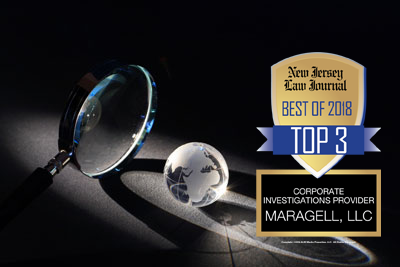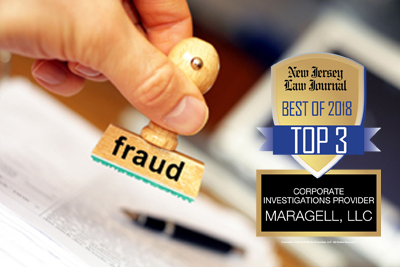HADDONFIELD, NJ – OCTOBER 10, 2013 – Maragell Corporate Investigations celebrated its first year in business on October 10th with a ribbon-cutting ceremony and interactive community open house. The company, which until 2012 operated as the U.S. office of Intelysis Corp., benefited from an upturn in the region’s economy. “We saw a marked increase in investment activity by hedge fund and venture capital clients, which use our services to conduct background checks on prospective portfolio companies,” said Jeffrey Brenner, Esq., NJLPI, the company’s founder. “Our team was also brought into several complex computer forensic investigations, including theft of intellectual property, bankruptcy fraud, and employee violations of restrictive covenants,” he added.
As part of the open house festivities, Maragell’s staff demonstrated several insider investigative techniques. Team members accepted computer hard drives from attendees and demonstrated how data the users thought was permanently deleted could still be retrieved. Then, using the U.S. Department of Defense data destruction standards, they wiped the hard drives, enabling them to be recycled without fear of data loss or identity theft.
Brenner and his team also amazed guests by broadening their understanding of the power of the Internet, showing that many of the same tools used to locate to locate lost friends and loved ones can be used to track down missing persons, debtors, and witnesses. Similar strategies are also used to conduct pre-employment background checks. Maragell’s researchers demonstrated how these checks are conducted and why they are more of an art form than an exercise in data input/output. Combining multiple sources of public information, investigative databases, social media sites, and Google, together with data provided by the subject (in this case one of Maragell’s employees), the demonstration revealed how a PI reads the tea leaves and assimilates the information to create a complete, and accurate, picture of the subject.
Maragell completed the day with a demonstration on how computer forensic experts hunt for evidence of wrongdoing through the use of keyword searches and deleted emails. Of note was the fact that words such as “non-compete” and “breach” which might be expected to return relevant information about an employee’s plans to violate his or her contract, were shown to appear in many forms and locations having nothing to do with the facts of a case. “Poor keyword choices can cost a client thousands of dollars in eDiscovery costs and attorney review time, and we make every effort to avoid this pitfall with highly strategic searching,” said Brenner.




